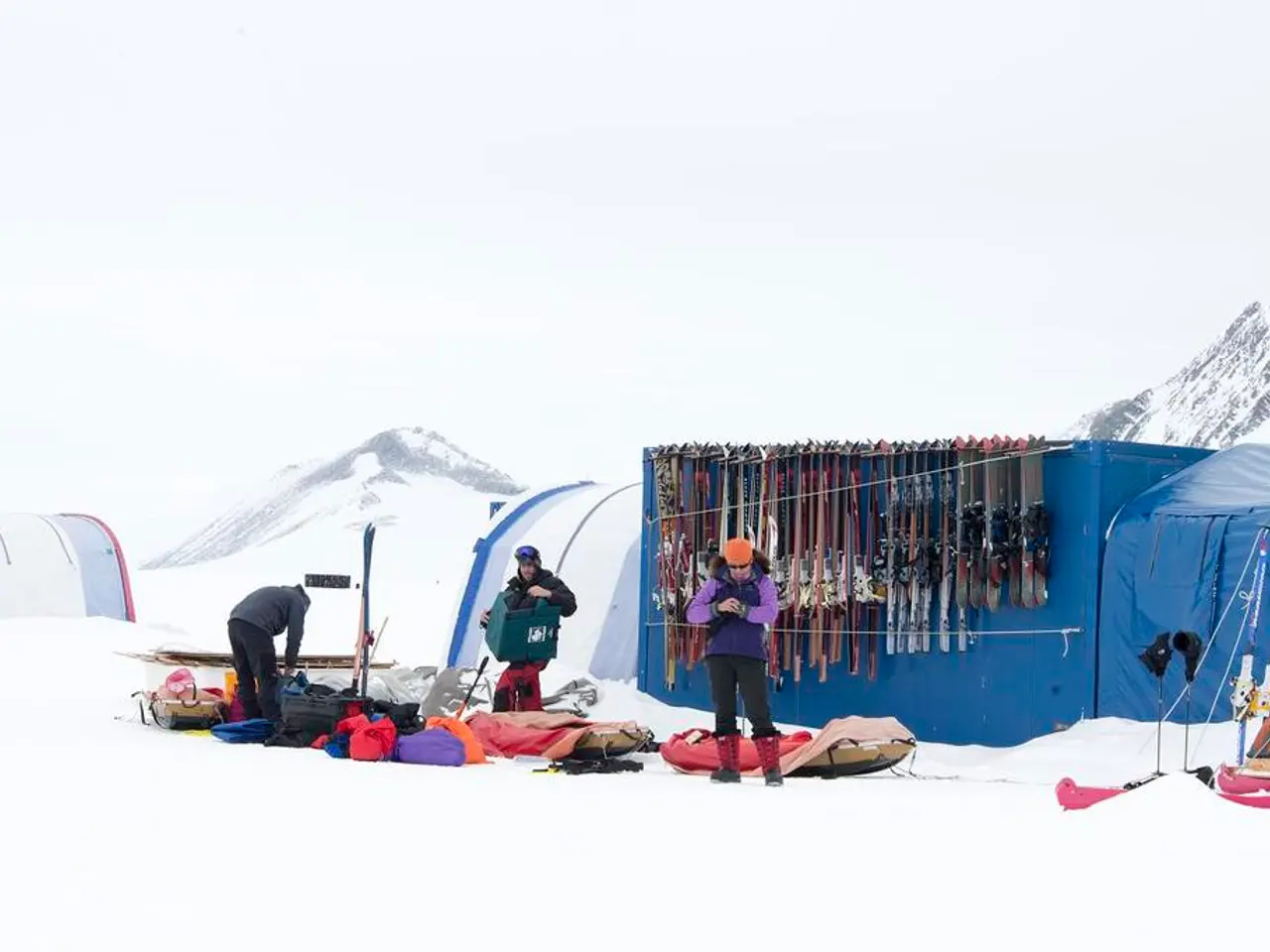Guideful Involvement and Guidance on Juneau Icefield
The Juneau Icefield Research Program (JIRP), located between Juneau, Alaska, and Atlin, British Columbia, is a long-standing field research expedition that has been measuring glacier mass balance and other glaciological data since the mid-1940s. As the longest continuous glacial monitoring program in North America, JIRP's data have been crucial for understanding glacier retreat, mass loss, and climate change effects in Southeast Alaska and the North Cascades region.
JIRP's educational philosophy is based on a trio of ideals: nature, books, and action. Nature, in JIRP's philosophy, represents the primary source of knowledge, the world around us. Books, or mentorship, provide the means to transfer this knowledge from one generation to the next. Action, engagement with the world, is the quest for knowledge.
The Taku Glacier, one of the largest glaciers studied in Alaska, is a focus of JIRP's research. Accessible only by ski or by helicopter, the Taku Glacier requires an enormous effort, including learning technical skills for safe traverses and studying at remote sites. Measuring the mass balance of the Taku Glacier is no small feat, but for those seeking a great research experience, prioritizing opportunities for mentorship and active engagement is highly recommended.
JIRP functions as an expeditionary summer field school where students from various academic levels—undergraduates, graduate students, and young scientists—participate directly by ski-traversing and conducting field measurements across the icefield. This hands-on approach provides students with practical experience in glaciology, climatology, and cold-region science, building their skills for careers in Earth sciences.
The program's field research methods employ traditional glaciological techniques combined with modern instrumentation. Continuous in situ measurements of glacier mass balance by snow and ice surveys, surface elevation profiling and crevasse depth studies, deployment of weather stations and remote sensing tools for climate and glacier monitoring, and detailed monitoring of glacier runoff and meltwater are just a few examples of the methods used by JIRP.
The remote expeditionary setting on JIRP fosters a close-knit and collaborative community, with students working closely with faculty mentors. Students work as part of the glacial mass balance team, measuring snow accumulation and ice melting across the Taku Glacier. This immersive field education experience is relevant to any Princeton student, regardless of their research discipline or focus.
Action, in JIRP's philosophy, is the source of growth, discovery, and inspiration. For Alec Getraer, the Natural Sciences Correspondent, this rang true when he joined JIRP with no prior experience in glacial research or skiing. Despite this, he found it to be one of the most rewarding research experiences of his career. Through books (mentorship) and action (active engagement in research), understanding of nature (the world around us) is achieved in JIRP.
In summary, JIRP combines long-term glacier monitoring with immersive student field education and robust scientific methods to advance understanding of glacier dynamics and climate change in North America. Its continuous operation since the 1940s makes it a unique and vital resource in cryospheric science.
- For Alec Getraer, the Natural Sciences Correspondent, joining the Juneau Icefield Research Program (JIRP) without prior experience in glacial research or skiing was one of the most rewarding research experiences of his career, demonstrating that personal growth and discovery can be achieved through action and mentorship provided by JIRP.
- JIRP's senior thesis projects in environmental science, focusing on climate-change effects and glacier dynamics, offer students an opportunity for educational and self-development, enabling them to gain practical experience in glaciology, climatology, and cold-region science for their future careers in Earth sciences.
- Princeton students, regardless of their research discipline or focus, can benefit from the immersive field education experience offered by JIRP, as it combines long-term glacier monitoring, hands-on research methods, and a close-knit, collaborative community to foster a comprehensive understanding of the world, contribute to the understanding of glacier dynamics and climate change in North America, and engage in learning opportunities for ongoing education and personal growth.




